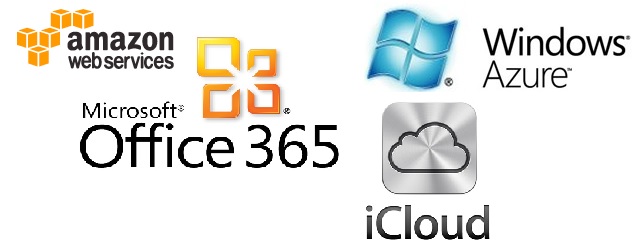
They times… are they really a-changin’? I’m the first person on to any technology band wagon. Yes, I already pre-ordered my WindowsRT tablet. Yes, I pre-ordered the Wii U, and the Ouya. I have a lot of my own data stored in “the cloud” and use multiple cloud computing services. Yes, I’m running the Windows 8 RTM and always have beta versions of OS’s on practically all of my devices. But being a technophile and getting wrapped up in the latest and greatest, doesn’t necessarily mean that I believe all of the hype and buzz words in the industry.
Microsoft has been trying to sell “software as a service” for almost as long as I can remember. I think I even recall an issue of “Time Magazine for Kids” or something along those lines, circa 1999, where a Microsoft spokesperson touted the day that you would no longer “buy” Windows for your computer, you would “rent” it on a monthly basis, and it would be stored on a massive super computer somewhere far, far away. This scared me, for some reason. But lately, I have seen why.
I don’t want to down-play “cloud” based technology. I think the potential is brilliant, and what it offers small businesses is undeniably attractive. When implemented correctly, you can have access to not only your email, calendar, and contacts, but every single one of your documents, presentations, spreadsheets, whitepapers, and anything else you can think of. It’s right there, at your fingertips, across multiple devices, on practically every platform – whether you’re at home, at work, or on the road, pulled over to a rest stop with Wi-Fi.
Some people are right to call “BYOD” a fad. “Bring Your Own Device” can make life for your IT guy a living hell – but in the same token, it’s not all going to pass. Partially, it will. I have strong feeling that as all of the platforms fragment, it’s going to become increasingly difficult to not only support, but secure the information on various tablets. Tablets will be barred from organizations unless they are provided by your company. IT departments will never stop cell phones – it would be too expensive in this country to provide every employee with a “work” phone, as is done quite commonly in Chinese businesses. It is very common for a businessman in China to have at least two, if not more, phones – and keep them distinct for “personal” and “family.” Here, though? I don’t see that being adopted en masse. Still, I do see tablets being “outlawed” so to speak, as they present massive risks and
Cloud services have amazing potential, and I feel they have their place. But does anyone remember the Northeast blackout of 2003? Hurricane Ike in 2008? RIM’s Blackberry outage in 2011? How soon we forget. But not having something for 24-48 hours is bad enough, but wait until that one day… let’s say something drastic happens, like Office 365 experiences a “RIM-like” outage. Millions of companies are without email. This isn’t just impacting your mobile device, this isn’t just text messaging or making a quick call – this is the backbone of many companies, still. And let’s say it’s not just 24 hours, let’s go a full 5 days. I’m not saying something so drastic will happen, but I’m a well traveled Cynic, and no matter how redundant something is supposed to be – I’m always thinking of the worst case scenario. Like, just what are those people doing with my email?
It wasn’t long ago that major offline events happened, and if you think we’ve come a long way, you’ve got a rosier outlook than I do. Things have improved, but we’re not ready for cyberwar, let alone massive outages caused by accident. My prediction is that, by the year 2018, most likely within the next 4 years, so by the end of 2016, I anticipate some “large scale outage” of a cloud-based service is going to bring many companies to their knees, for too long a period of time. Only then will people move off the cloud, back to their localized servers. Virtualized, less expensive, highly redundant, with cloud-based backup solutions servers, that they will have on site and feel much more comfortable with.
People want to save money and increase convenience with cloud services – and something bad will have to happen before they abandon it. But it is only a matter of time, in my opinion. You can call me crazy, but there was a time when building a house with Asbestos was all the rage. Why? It was convenient, and less expensive. But, we had to learn the hard way, that it wasn’t the best solution, and we quickly went back to more traditional methods. Lots of trends get started, and quickly fad away. The good news here is, cloud computing won’t kill you. But you might wish you were dead when your data is lost, stolen, or otherwise deleted.

